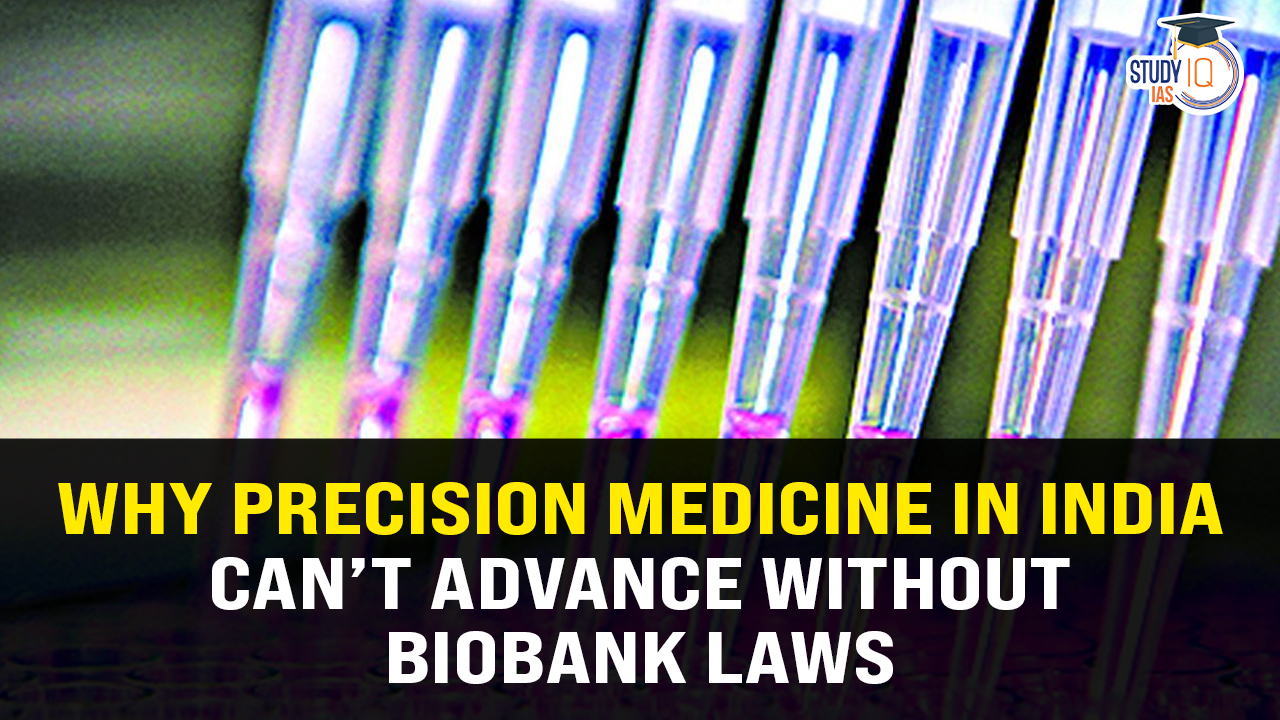Table of Contents
What is Precision Medicine?
Precision medicine is a personalised healthcare approach that tailors treatments based on an individual’s genetic makeup, lifestyle, and environment. It aims to move away from one-size-fits-all treatments, providing more effective and targeted therapies for various diseases like cancer, cardiovascular conditions, and genetic disorders.
Evolution and Status of Precision Medicine in India
Precision medicine gained momentum globally with the completion of the Human Genome Project, and in India, the field is growing rapidly:
- The Indian precision medicine market is projected to grow at a CAGR of 16% and exceed $5 billion by 2030.
- It contributes to 36% of India’s bioeconomy, with advancements in cancer immunotherapy, gene editing, and biologics.
- Key developments:
- NexCAR19: India’s domestically developed CAR-T cell therapy approved in 2023.
- AI collaborations, such as between Siemens Healthineers and the Indian Institute of Science, aim to harness precision medicine for cancer treatments.
Biobanks: Foundation of Precision Medicine
Biobanks store biological samples (blood, DNA, tissues) and genetic data for research, helping identify treatments and potential therapies.
- India has 19 registered biobanks, with notable projects like:
- Genome India: Sequenced 10,000 genomes from 99 ethnic groups for rare disease treatments.
- Phenome India: Collected 10,000 samples for cardio-metabolic disease prediction.
- Paediatric Rare Genetic Disorders (PRaGeD): Identifies genetic diseases in children.
- However, biobank success depends on large and diverse collections of samples for accurate research outcomes.
Biobank Regulations in India
Biobanking regulations in India are inconsistent and pose challenges:
- India lacks a law to protect the rights of individuals who provide samples, unlike countries like the S., U.K., and Japan.
- Existing guidelines from Indian Council of Medical Research (ICMR) and Department of Biotechnology (DBT) have gaps, such as no clarity on how long data will be stored, who can access it, or safeguards against data misuse.
- Without a single regulatory authority and penalties for misconduct, ethical violations like unauthorised sample sharing are a significant risk.
- The absence of clear regulations threatens to let foreign pharmaceutical companies exploit Indian samples without Indians benefiting from research profits or innovations.
Opportunities for India
India can strengthen its leadership in precision medicine by:
- Implementing strong biobank regulations to align with global standards, ensuring data protection, privacy, and transparency.
- Establishing an expert regulatory committee to oversee biobanks and penalise violations.
- Leveraging its existing strengths in pharmaceuticals and vaccine manufacturing to expand into next-generation therapeutics and global biobank partnerships.
- Encouraging public participation by ensuring privacy protections, fostering greater research and innovation in the field of precision medicine.
- Becoming a global leader by integrating biobank frameworks into international collaborations through platforms like BRICS and the Quad.


 NASA Parker Solar Probe Flies Closer to ...
NASA Parker Solar Probe Flies Closer to ...
 Silvaguard Drone, Purpose and Working Me...
Silvaguard Drone, Purpose and Working Me...
 India’s Deep Sea Technology, Need and ...
India’s Deep Sea Technology, Need and ...





















